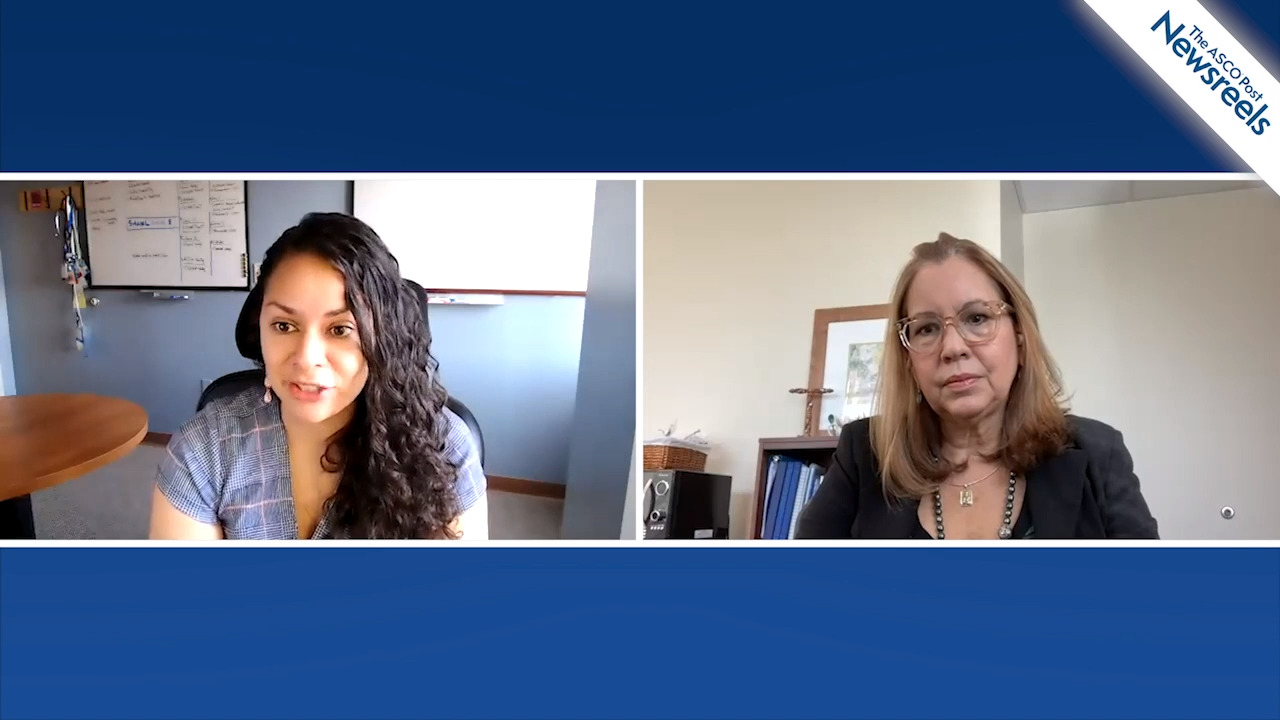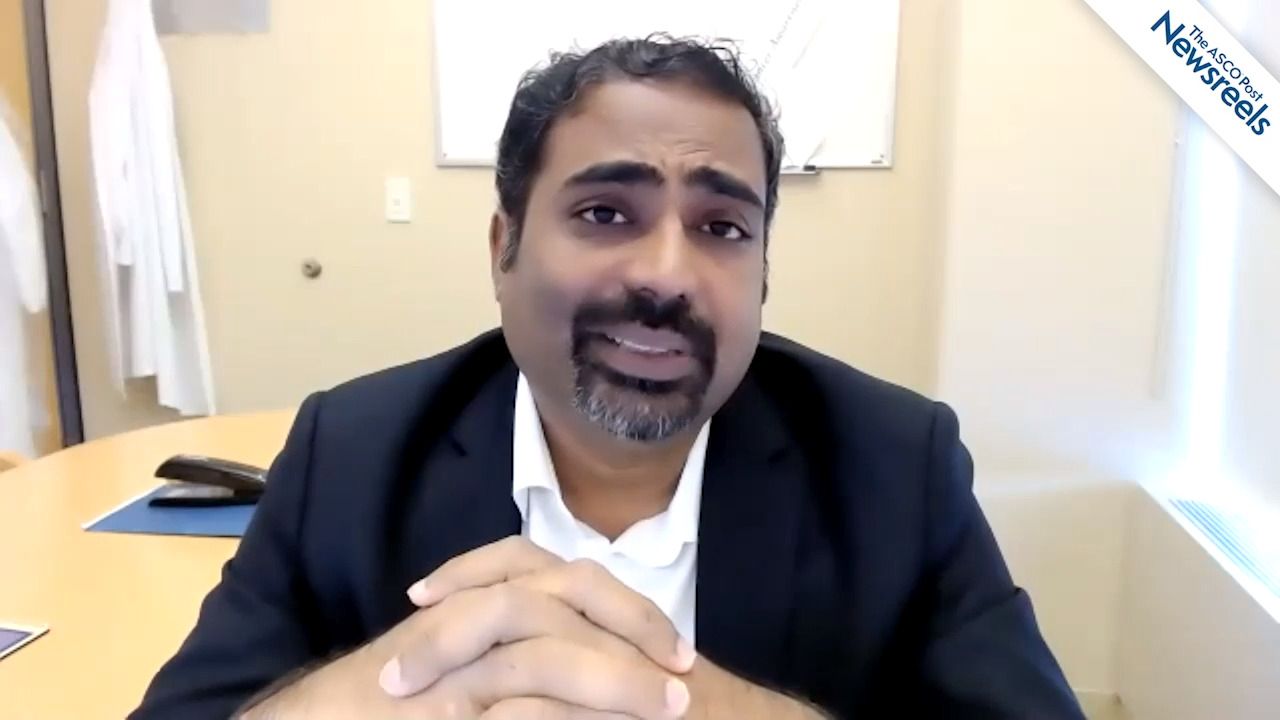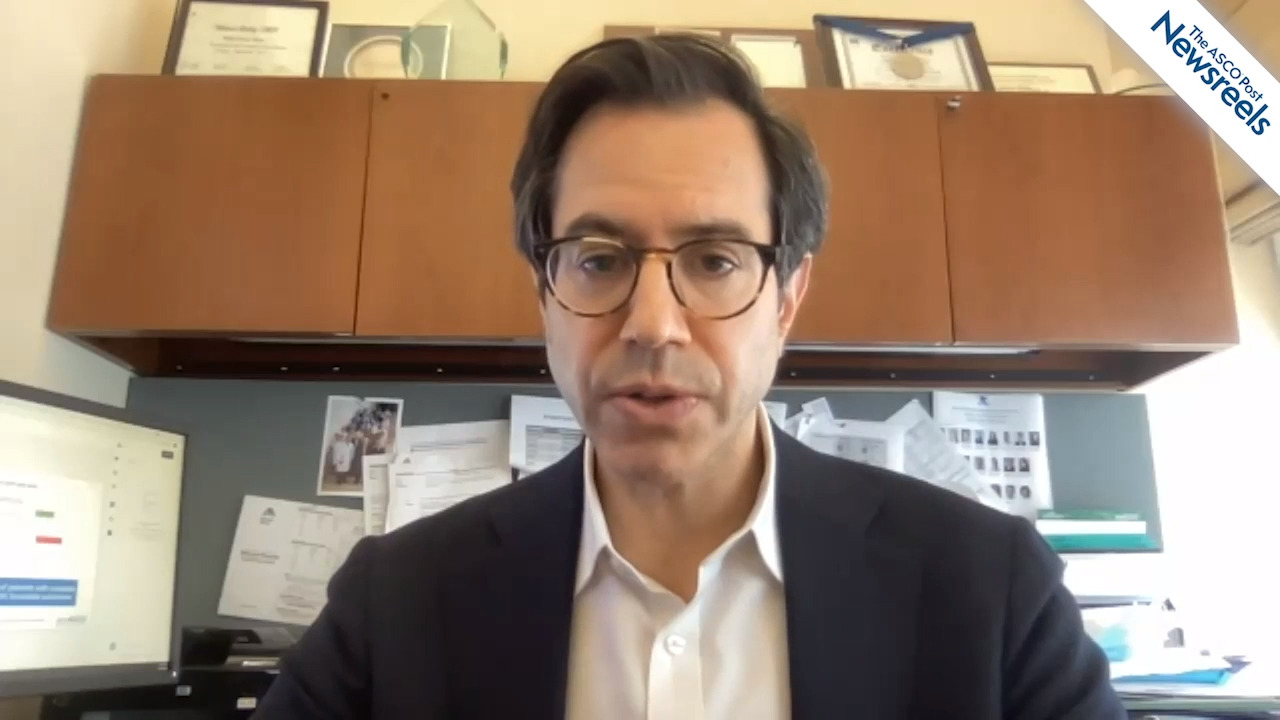Robert J. Motzer, MD, on RCC: Quality of Life for Patients Treated With Lenvatinib-Based Therapy vs Sunitinib
2021 ASCO Annual Meeting
Robert J. Motzer, MD, of Memorial Sloan Kettering Cancer Center, discusses health-related quality-of-life data from the phase III CLEAR trial, which compared lenvatinib plus pembrolizumab or everolimus vs sunitinib as first-line treatment for patients with advanced renal cell carcinoma (Abstract 4502).
The ASCO Post Staff
Martin Reck, MD, PhD, of LungenClinic, discusses a 2-year update of the CheckMate 9LA study, which sought to determine whether nivolumab plus ipilimumab combined with two cycles of chemotherapy is more effective than four cycles of chemotherapy alone as a first-line treatment for patients with stage IV non–small cell lung cancer (Abstract 9000).
The ASCO Post Staff
Peter C. Black, MD, of the Vancouver Prostate Centre, University of British Columbia, reviews three studies on early detection and treatment of Black patients with prostate cancer: a large-scale analysis of genomic profiling; the use of PSA screening; and integrating a patient-specific genomic classifier to improve risk classification and treatment recommendations for Black men (Abstracts 5003, 5004, and 5005).
The ASCO Post Staff
Narjust Duma, MD, of the Carbone Cancer Center at the University of Wisconsin, Madison, and Gladys I. Rodriguez, MD, of South Texas Oncology and Hematology, talk about the underrepresentation of Hispanic individuals in medicine, especially in oncology, and their efforts to create the first Young Investigator Award in Recognition of an Outstanding Latina Researcher to encourage Hispanic women to enter medicine and cancer research.
The ASCO Post Staff
Vamsidhar Velcheti, MD, of New York University, discusses overall survival and exploratory subgroup analyses from the phase II CodeBreaK 100 trial, which evaluated the use of sotorasib in pretreated KRAS G12C–mutant non–small cell lung cancer (Abstract 9003).
The ASCO Post Staff
Matt D. Galsky, MD, of the Tisch Cancer Institute at Icahn School of Medicine at Mount Sinai, discusses results from a phase II trial designed to test gemcitabine and cisplatin plus nivolumab as neoadjuvant therapy in patients with muscle-invasive bladder cancer and to better predict benefit in those who opted out of cystectomy (Abstract 4503).





